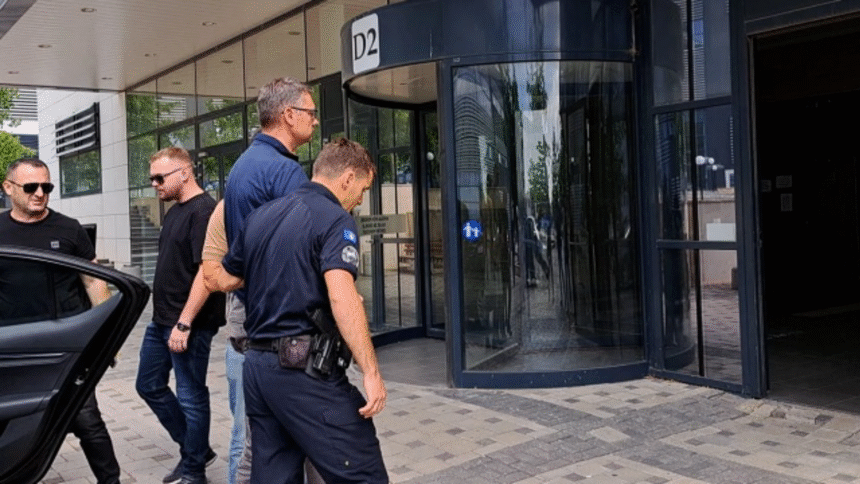Prishtina, July 21, 2025 – The recent arrest of Serbian government official Igor Popović has triggered diplomatic tensions between Kosovo and Serbia, after he labeled the Kosovo Liberation Army (UÇK) a “terrorist organization” during a commemoration marking the anniversary of killings of Serbs and Roma in the village of Hoça e Madhe.
Kosovo authorities arrested Popović at the border with Serbia, charging him with incitement of ethnic hatred and division — a criminal offense under Kosovo’s Penal Code that carries a maximum sentence of up to 8 years in prison.
Popović, who serves as an assistant director at the Serbian Government’s Office for Kosovo, was placed in 30-day pretrial detention. His remarks have not only reignited emotional scars but also caused sharp political backlash in Serbia, where officials have condemned the arrest as a “provocation.”
The High Public Prosecutor’s Office in Belgrade has opened a preliminary inquiry, stating that it has requested information from Serbia’s Criminal Police Directorate and Security Information Agency (BIA) in order to investigate “whether the crime of abduction has been committed.” This signals that Serbian authorities may view Popović’s arrest as unlawful.
Serbian President Aleksandar Vučić condemned the arrest, calling it an act of “political madness” by Kosovo Prime Minister Albin Kurti, and warned of “unpredictable consequences.”
“Kurti is deliberately pushing the region toward instability,” Vučić told Serbian outlet Pink TV, adding, “we will do everything to maintain peace and stability, but we will respond harshly and decisively if this terror continues.”
While Kosovo’s legal institutions maintain that the arrest was made in accordance with domestic laws protecting public order and interethnic harmony, the case has become yet another flashpoint in the fragile relations between the two countries.
Whether Popović will face a full criminal trial or be released under international pressure remains to be seen, but one thing is clear: the legacy of the war, the status of the KLA, and ethnic narratives still carry explosive weight in the Balkans.







